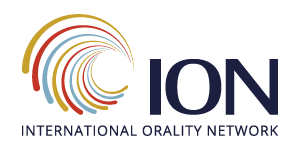The Jesus Film is launched.
Marshall McLuhan studies the influence of communication media independent of their content.
Scientific study of oral tradition can be traced back at least to Vuk Stefanovic Karadzic (1787-1864). But a more direct influence on Christian communication were the works of media theorist Marshall McLuhan who studied the influence of communication media independent of their content, of Viggo Sogaard, who helped people understand the importance of knowing and understanding the audience one is serving, and of Walter Ong, especially through his book The Technologizing of the Word, a distinctive work, published in twelve languages, where he attempted to identify the distinguishing characteristics of orality from a literate perspective. Read full history >
Mark and Gloria Zook of the New Tribes Mission (NTM) pioneer work in Bible storytelling with an oral preference people group of Papua New Guinea.
In a practical sense, the modern orality movement began with missionaries Mark and Gloria Zook of the New Tribes Mission (NTM) who pioneered work with the Mouk of Papua New Guinea in the 1970s. Mark taught them to tell the stories from Creation to Christ and they took the gospel to twelve other villages, many of whom spoke different languages. Trevor McIlwain shared this chronological Bible teaching method with other NTM missionaries in the Philippines in the 1980s, who used it with tribal people there with similar results. Later some NTM missionaries modified the highly expositional style with literate processes to be more oral. Read full history >
Scroll Down ∨
1980s
Trevor McIlwain shares the chronological Bible teaching method with other NTM missionaries in the Philippines, who use it with tribal people there and have similar results.
Jim Slack (IMB), of the Southern Baptist Convention in the Philippines, begins developing chronological Bible storying that utilizes storytelling followed by dialogue.
By the late 1980s Jim Slack, with the Foreign Mission Board (now the International Mission Board – IMB) of the Southern Baptist Convention serving in the Philippines, concluded that existing approaches to chronological Bible presentation were still too literate. He began developing chronological Bible storying that utilized storytelling followed by dialogue. Read full history >
Scroll Down ∨
1990s
Jim Slack and J.O. Terry continue to revise and introduce the storytelling approach to missionaries and partners around the world.
Teams begin developing oral strategies to reach oral preference communicators. They are trained by organizations such as VMS (of SIL) and Scriptures in Use.
In the early 1990s, teams began developing oral strategies to reach oral preferenced communicators. The early development of strategy and application of relevant communication art forms, including storying, drama, song, and other media came through the early training efforts of organizations like Vernacular Media Services (VMS), a ministry of SIL (originally known as the Summer Institute of Linguistics, Inc.), and Scriptures In Use (SIU). These early oral initiatives were implemented by teams from evangelical ministries including Pioneer Bible Translators (Pioneers), the Translators Association of the Philippines (TAP), Lutheran Bible Translators (LBT), the Reformed Church in America (RCA), IMB, TWR, and the Campus Crusade for Christ International (CRU) and the Jesus Film Project (JFP). Read full history >
Several consultations are conducted with CCCI, IMB, SIL and UBS in Kenya, Cyprus and England that bring a growing awareness of oral preference communication and learning among unreached people groups.
In the late 1990s several consultations were conducted with CRU, IMB, SIL, and the United Bible Society (UBS) in Kenya, Cyprus, and England that brought a growing awareness of many unreached peoples being primarily oral preferenced communicators. Ron Green of JFP, Steve Evans of IMB, and Marilyn Malmstrom of VMS were instrumental in calling for these meetings. Read full history >
Scroll Down ∨
2000s
“Table 71” is formed at the Amsterdam Conference on Evangelism to work together in partnership among the remaining unreached people groups of the world. The question is asked, “How do we make disciples of oral learners?” after learning that 80% of the world are oral preference learners.
The Amsterdam 2000 Conference, organized by the Billy Graham Association, was a gathering of some 10,000 evangelists with the purpose to unite, train and equip evangelists for the 21st century. During one of the working group sessions, a table of leaders representing a combined ministry to millions wrestled with the question of how to finish the task of reaching all of the unreached people groups. One outcome was the formation of “Table 71,” a loose association of Christian organizations committed to working together in partnership among the remaining unreached people groups in the world in order to help evangelize, make disciples, and to begin and nurture indigenous church planting movements.
It was also at Amsterdam 2000 that Marcus Vegh of Progressive Vision asked Avery Willis, who was Senior VP of Overseas Operations for the IMB, “How do you make disciples of oral learners?” The question hit home because it had just been pointed out that about 70% of the unreached peoples of the world being oral preferenced communicators. Consequently plans were made to further explore using oral forms of discipleship. Read full history >
Avery Willis and Paul Eshleman of JFP convene an orality consultation that results in the formation of the Oral Bible Network (OBN).
In 2001 Avery Willis of the IMB and Paul Eshleman of JFP convened representatives from 15 mission organizations for an orality consultation in San Clemente, California, USA that resulted in the formation of the Oral Bible Network (OBN). It was established to address the issue of effectively serving oral preferenced communicators in the context of who they were. The initial partners that started OBN were CRU, IMB, SIU, and Wycliffe International. Read full history >
Making Disciples of Oral Learners Working Group is formed at the Lausanne Committee for World Evangelization in Pattaya, Thailand.
In 2004 the Lausanne Committee for World Evangelization organized a Forum in Pattaya, Thailand, which was organized around 31 issue groups including the Orality Issue Group co-led by Avery Willis and Steve Evans. Each issue group was challenged to come up with a position paper to give an overview of the issue, to state the needs and offer solutions. The thoughts from the on-site meetings were edited and compiled into the book Making Disciples of Oral Learners (published 2007) it included as well a focus on the unique needs of the deaf. It was also at this forum that the topic of Secondary Orality began to surface as a needed focus. Read full history >
Scroll Down ∨
2005
The Making Disciples of Oral Learners Working Group merges together with OBN becoming the International Orality Network (ION) with the mission to radically influence the way oral preference communicators are evangelized and discipled in every people group.
The Making Disciples of Oral Learners Working Group of the 2004 Lausanne Forum on World Evangelization merged together with OBN becoming International Orality Network (ION) with the mission to radically influence the way oral preferenced communicators are evangelized and discipled in every people group. It serves to bring awareness and understanding of orality and oral preferenced communicators and connects mission organizations, churches, people who are reaching oral communicators, especially unreached people groups, to training resources as well as strategies that incorporate oral communication art forms, including various ways to implement storying programs. Read full history >
Avery Willis is seconded from the IMB to be the International Director of ION.
ION and the Lausanne Committee for World Evangelization (LCWE) jointly publish Making Disciples of Oral Learners, a book written by the working group at the 2004 LCWE consultation in Thailand.
In 2005 ION and the Lausanne Committee for World Evangelization (LCWE) jointly published Making Disciples of Oral Learners, a book written by the working group at the 2004 LCWE consultation in Thailand. In 2007 an updated second printing of 10,000 copies was published. In the meantime the book has been translated in Korean (2007), and in Traditional and Simplified Chinese (4000 copies each, 2009) with French, Russian, Spanish and Arabic (added in 2010). Read full history >
Scroll Down ∨
2009
ION receives the Innovation in Missions Award of The Missions Exchange in the context of the values of excellence, innovation, partnership and finishing well.
Scroll Down ∨
2010
The International Orality Network is saddened to see the home going of its founder Avery Willis prior to the 2010 Lausanne Congress in Cape Town.
The orality movement was a strategic priority component of Lausanne Three – Cape Town 2010 Congress held October 2010 in Capetown, South Africa. The Congress, which brought together around four thousand leaders from across the world, Dr. Grant Lovejoy, Professor of Preaching at Southwestern Baptist Theological Seminary and Samuel Chiang shared the need to develop new appropriate methods of communication, such as storytelling, drama, songs, visual arts, poetry, chants and music, for they are the most effective methods for reaching oral learners of this world with the gospel of Christ. The Cape Town Congress ended by expressing its total commitment to the orality agenda.
The following programme of action has been agreed by the Lausanne Commitment 2011. “Let us: 1. Make greater use of oral methodologies in discipling programmes, even among literate believers. 2. Make available an oral format Story Bible in the heart languages of unreached people groups as a matter of priority. 3. Encourage mission agencies to develop oral strategies, including: the recording and distribution of oral Bible stories for evangelism … 4. Encourage local churches in the Global South to engage with unreached people groups in their area through oral methods that are specific to their worldview. 5. Encourage seminaries to provide curricula that will train pastors and missionaries in oral methodologies.” (See http://www.lausanne.org/content/ctc/ctcommitment)
Samuel E. Chiang becomes the Executive Director.
A follow-up book to Making Disciples of Oral Learners is published in 2010 called Orality Breakouts: Using Heart Language to Transform Hearts.
ION becomes officially docked with the Missions Commission of the World Evangelical Alliance (WEA).
Scroll Down ∨
2011
The West Africa Orality Network is launched under the leadership of Dr. Bauta Motty.
Scroll Down ∨
2012
The ION consultation held at Estes Park celebrates the 10th anniversary based on the landmark consultation in 2002.
The East Africa Orality Network is launched under the leadership of Bramuel Musya.
The first global consultation on theological education and orality is held at the Billy Graham Centre at Wheaton College.
Beginning in 2012 ION began addressing the role of orality in Theological Education in consultations:
- Wheaton (2012) Beyond Literate Western Models: Contextualizing Theological Education in Oral Contexts
- Hong Kong (2013) Beyond Literate Western Practices: Continuing Conversations in Orality and Theological Education
- Houston & Asbury Seminary (2014) Beyond Literate Western Contexts: Honor & Shame and Assessment of Orality Preference
- Two additional Theological Consultations have occurred by with no published papers or books to date: Oklahoma (2015) and Daystar University (2016). Read full history >

